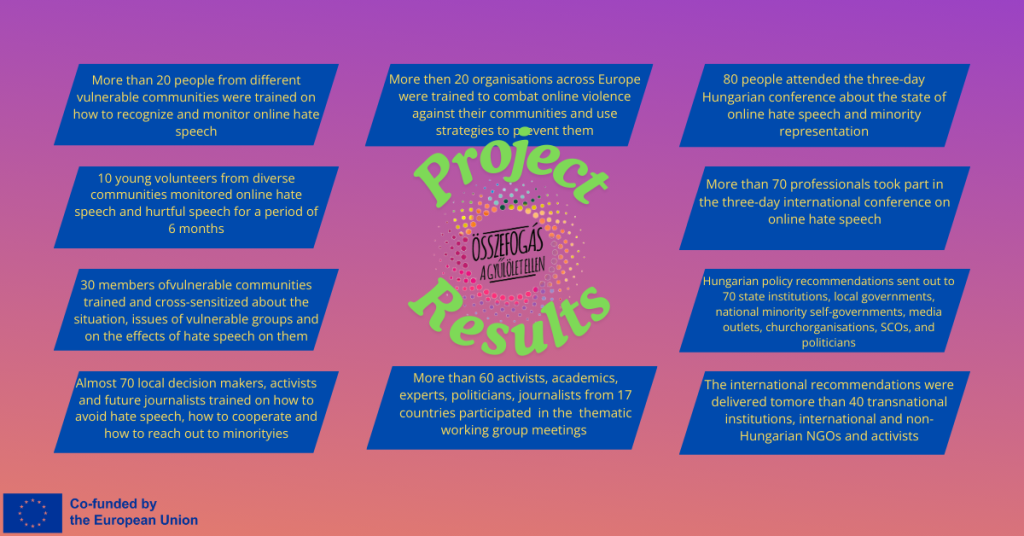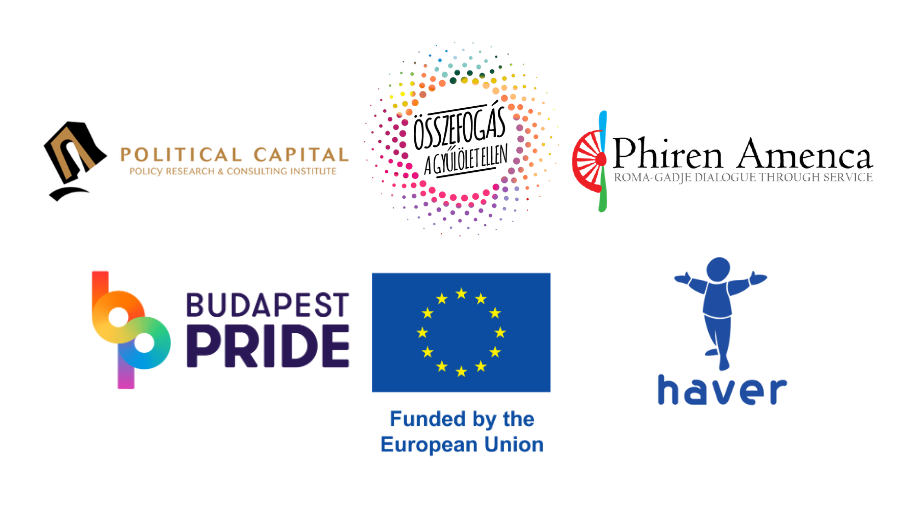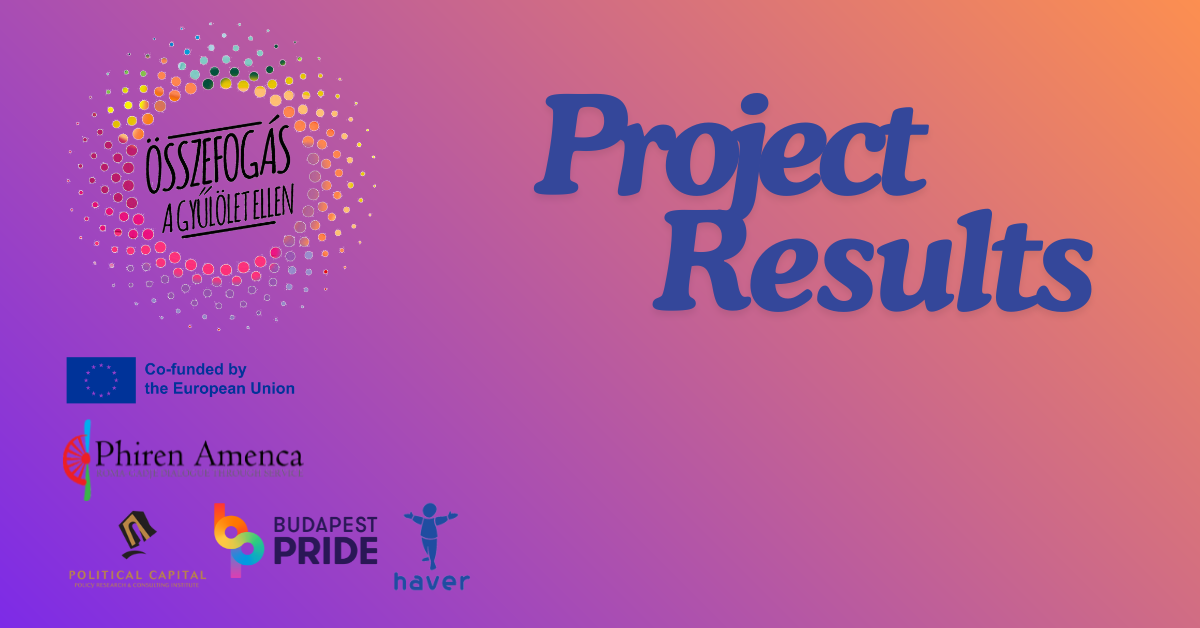CHAD-Countering Hate Speech and Hurtful Speech against Diversity: Roma, LGBTIQ, Jewish and Migrant Communities
April 1, 2022 – March 31, 2024
Dowload the booklet of the project’s results in English HERE!
A projekt eredményeinek összefoglalása INNEN tölthető le magyarul!
The CHAD project started in April, 2022 in order to formulate common and coordinated responses and strategies to widespread hate speech and unregulated verbal manifestations of discriminative statements in online media outlets, government campaigns and social media platforms. The coalition of Budapest Pride (Rainbow Mission Foundation) – a lesbian, gay, bisexual, feminist and anti-racist movement, Haver Foundation – non-profit Jewish community organization working in the field of informal education, Political Capital – an independent policy research, analysis and consulting institute, and Roma-Gadje Dialogue through Service – a non-profit organisation working for Roma youth empowerment set out to achieve the following objectives:
- to build a strong, capable coalition of migrant, Roma, Jewish and LGBTIQ organisations and communities on national and international level;
- to address the legal limitations of hate speech and advocate for a most extensive definition;
- to contribute to the disaggregated data collection on hate speech and hurtful speech affecting migrants, Roma, Jewish and LGBTIQ people in Hungary and internationally;
- to create and disseminate counter-narratives available for organisations and individuals to deploy when facing hate- or hurtful speech;
- to create a set of tools and methodologies compiled in a form of a toolkit for monitoring and countering hate speech and hurtful speech; and
- to address the inadequate or missing responses of public bodies, media workers and private companies to hate- and hurtful speech and develop their tools to combat them.
We achieved these goals in several ways
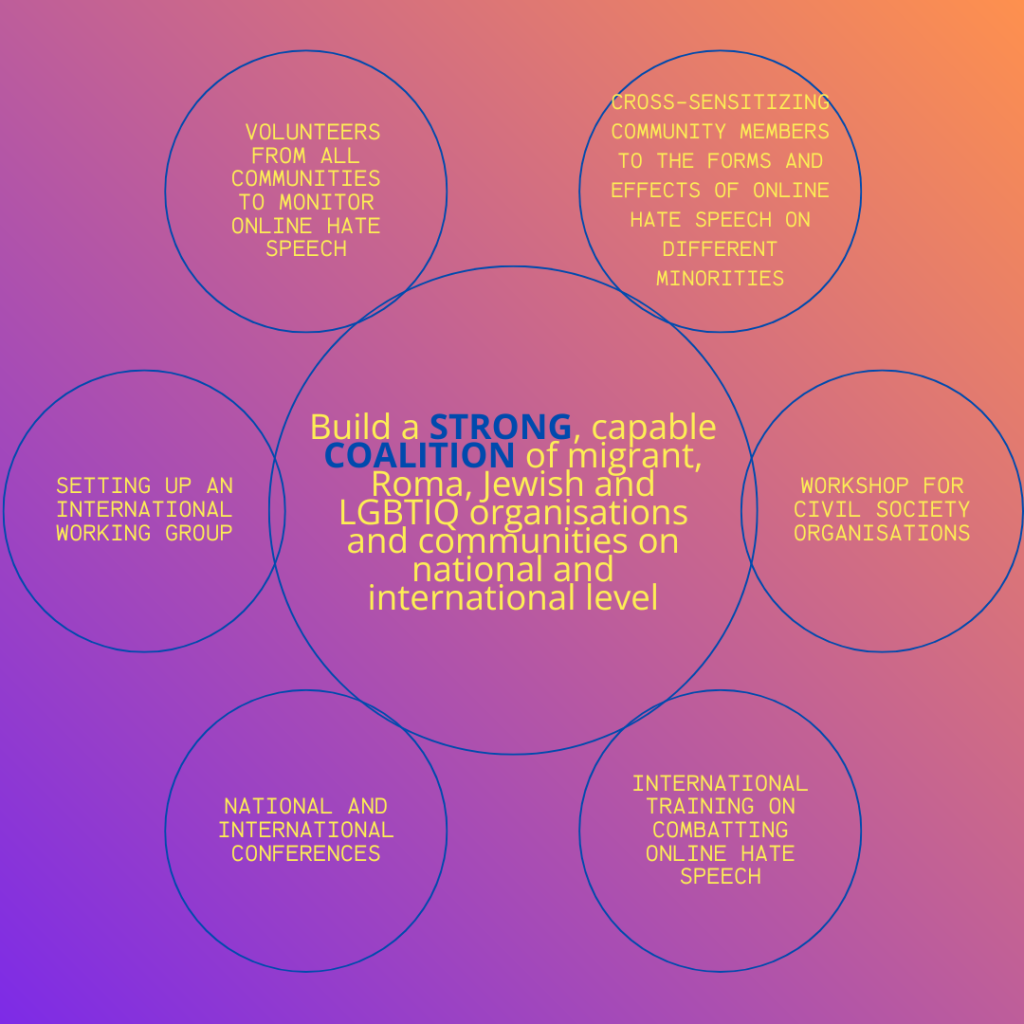
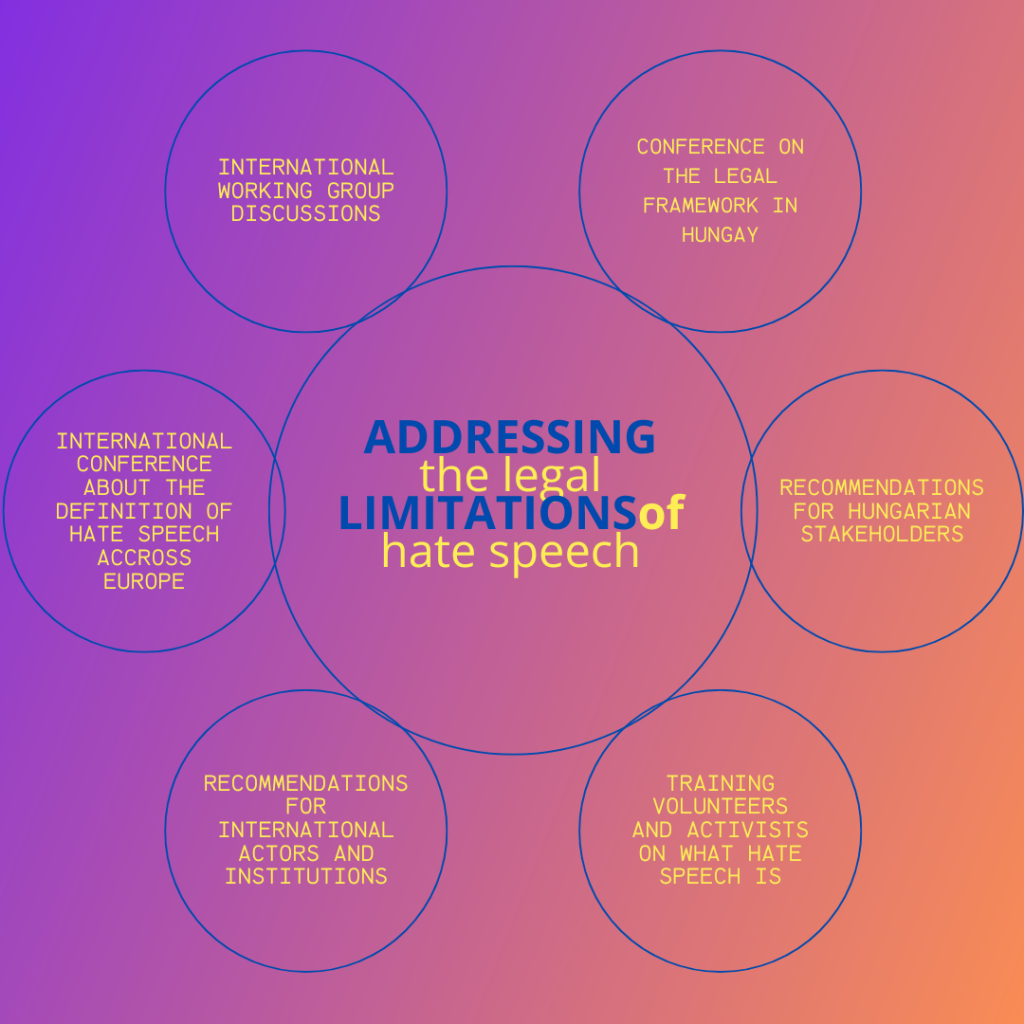
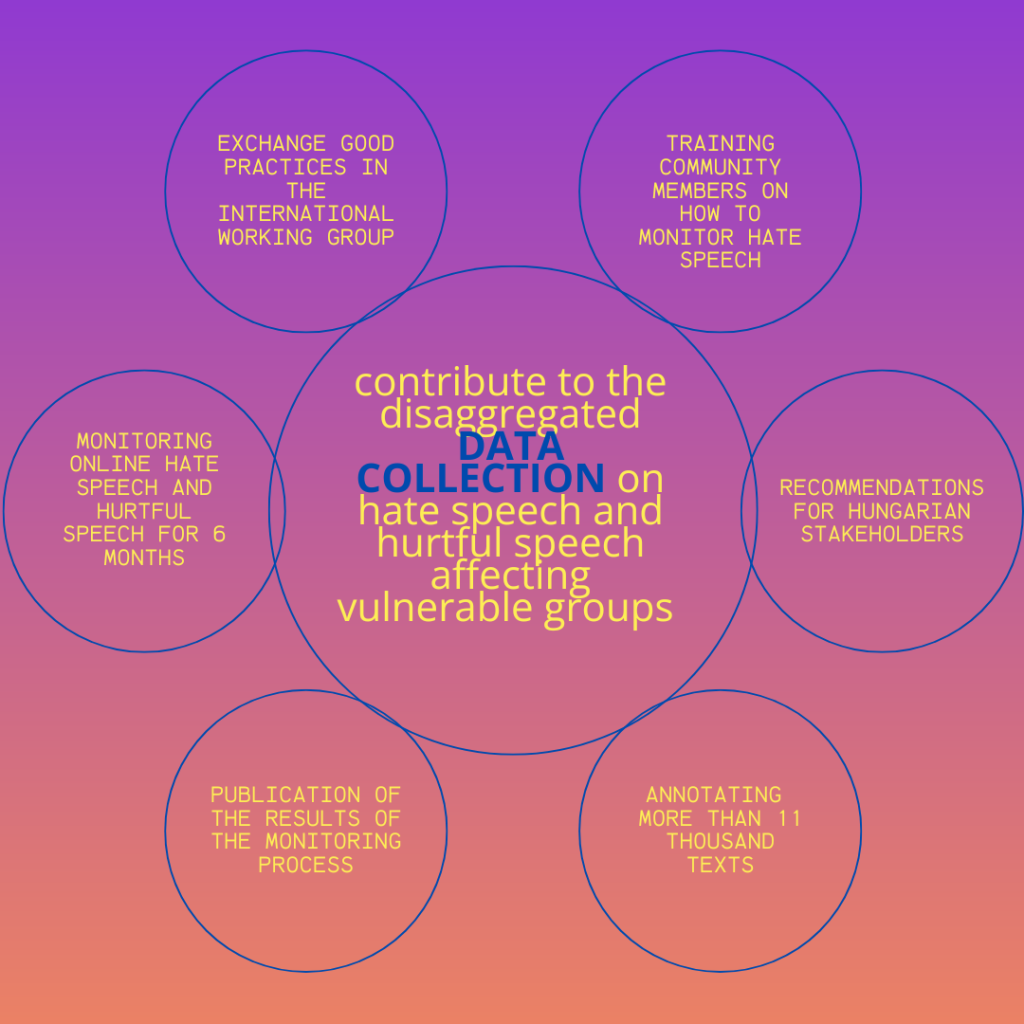
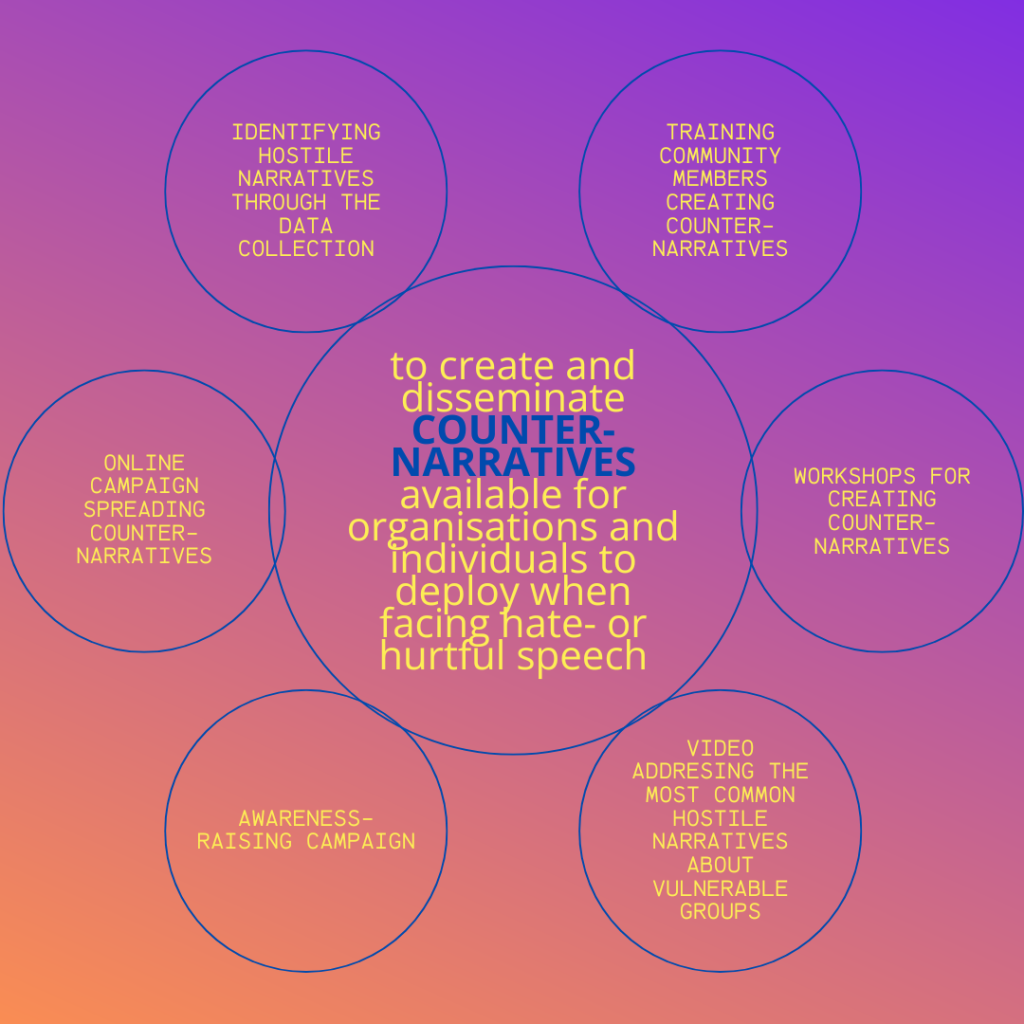
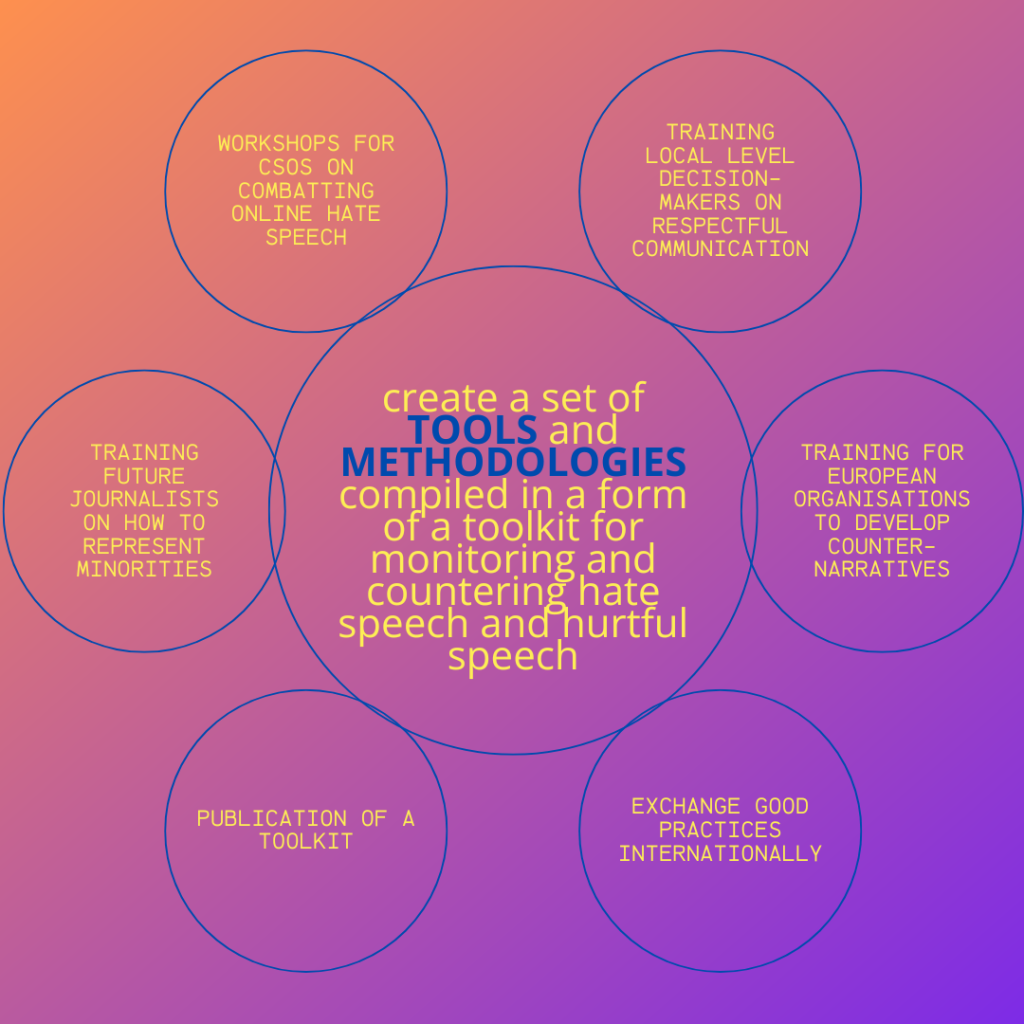
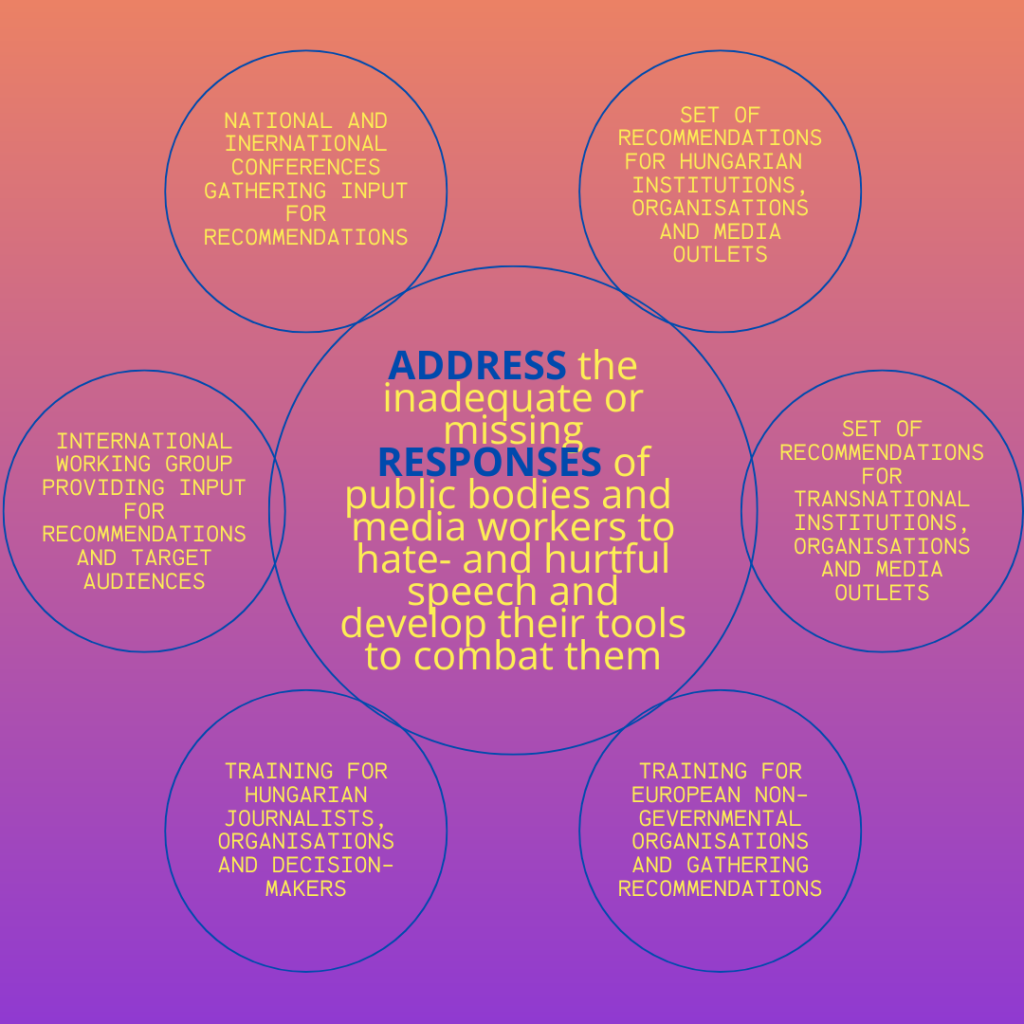
Throoughout the two years, we implemented more than 60 activities, and reached significant results:
More than 20 people from different vulnerable communities were trained on how to recognize and monitor online hate speech
10 young volunteers from diverse communities monitored online hate speech and hurtful speech for a period of 6 months
30 members of vulnerable communities were trained and cross-sensitized about the situation, issues of vulnerable groups and on the effects of hate speech on them
Almost 70 local decision makers, activists and future journalists were trained on how to avoid hate speech, how to cooperate with diverse groups and how to reach out to minorities
More than 20 organisations across Europe were trained to combat online violence against their communities and exchanged strategies to prevent it
More than 60 activists, academics, experts, politicians and journalists from 17 countries participated in the thematic working group meetings
80 people attended the three-day Hungarian conference about the state of online hate speech and minority representation
More than 70 professionals took part in the three-day international conference on online hate speech
Hungarian policy recommendations were sent out to 70 state institutions, local governments, national minority self-governments, media outlets, church organisations, SCOs, and politicians
The international recommendations were delivered to more than 40 transnational institutions, international and non-Hungarian NGOs and activists
